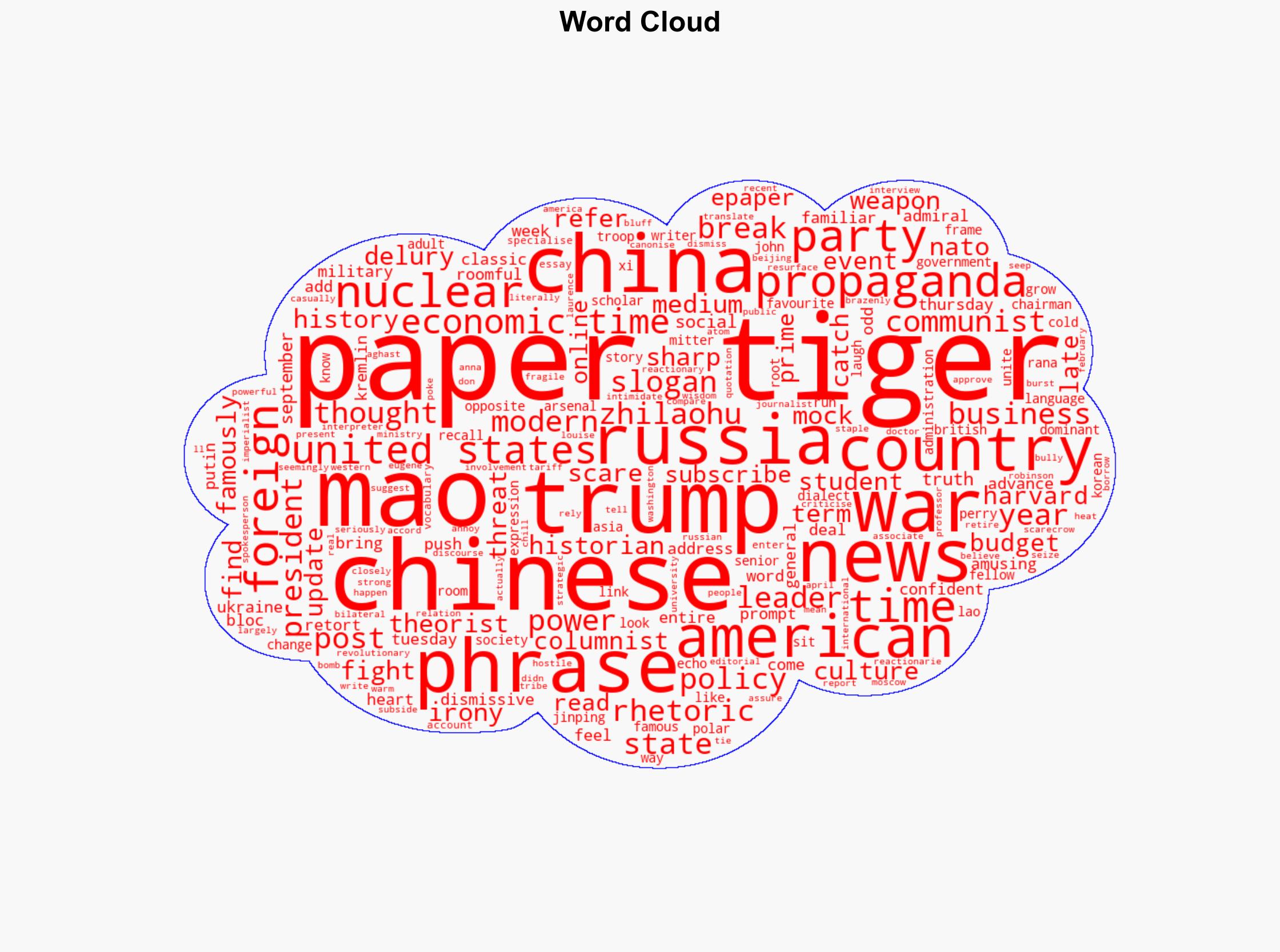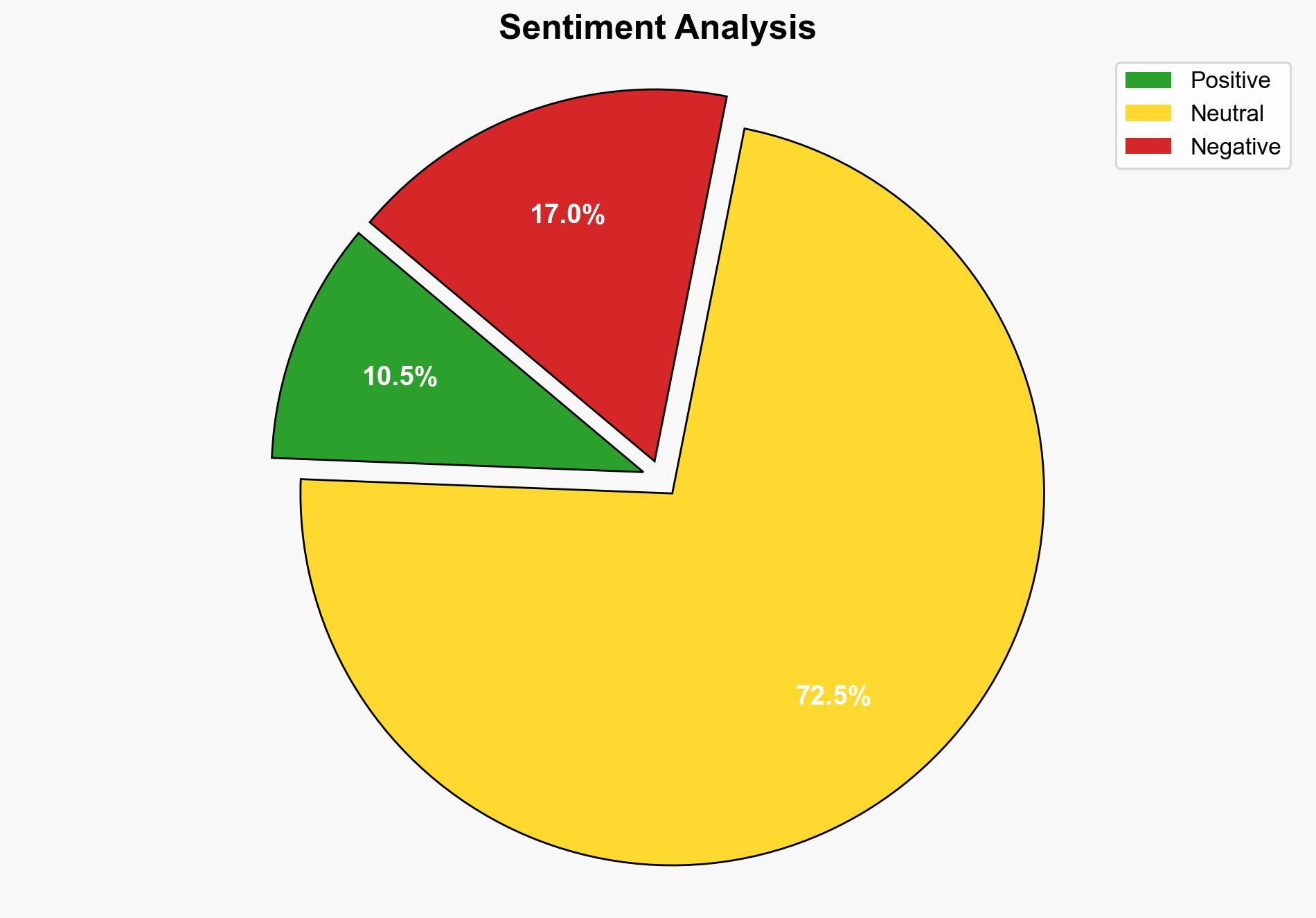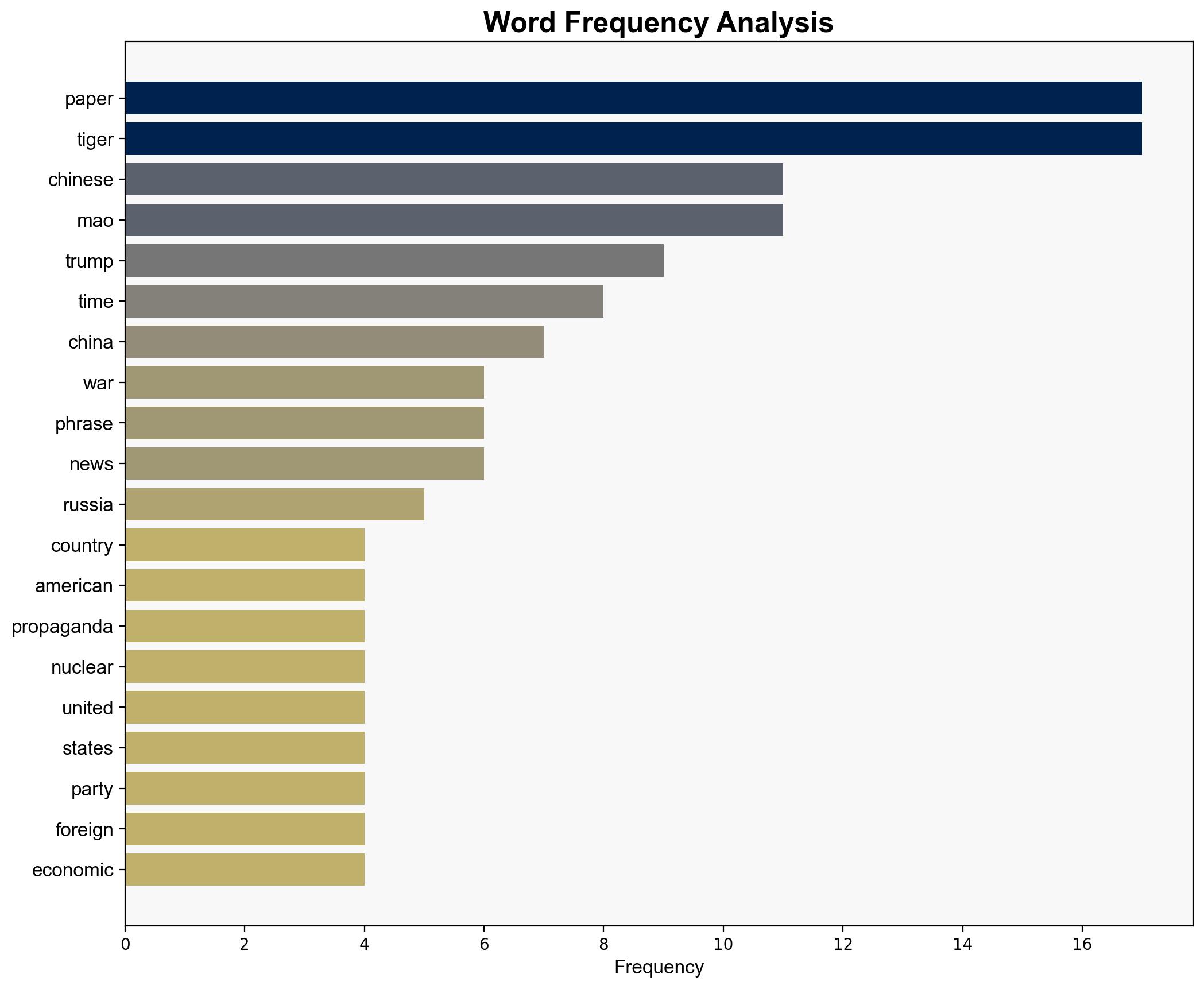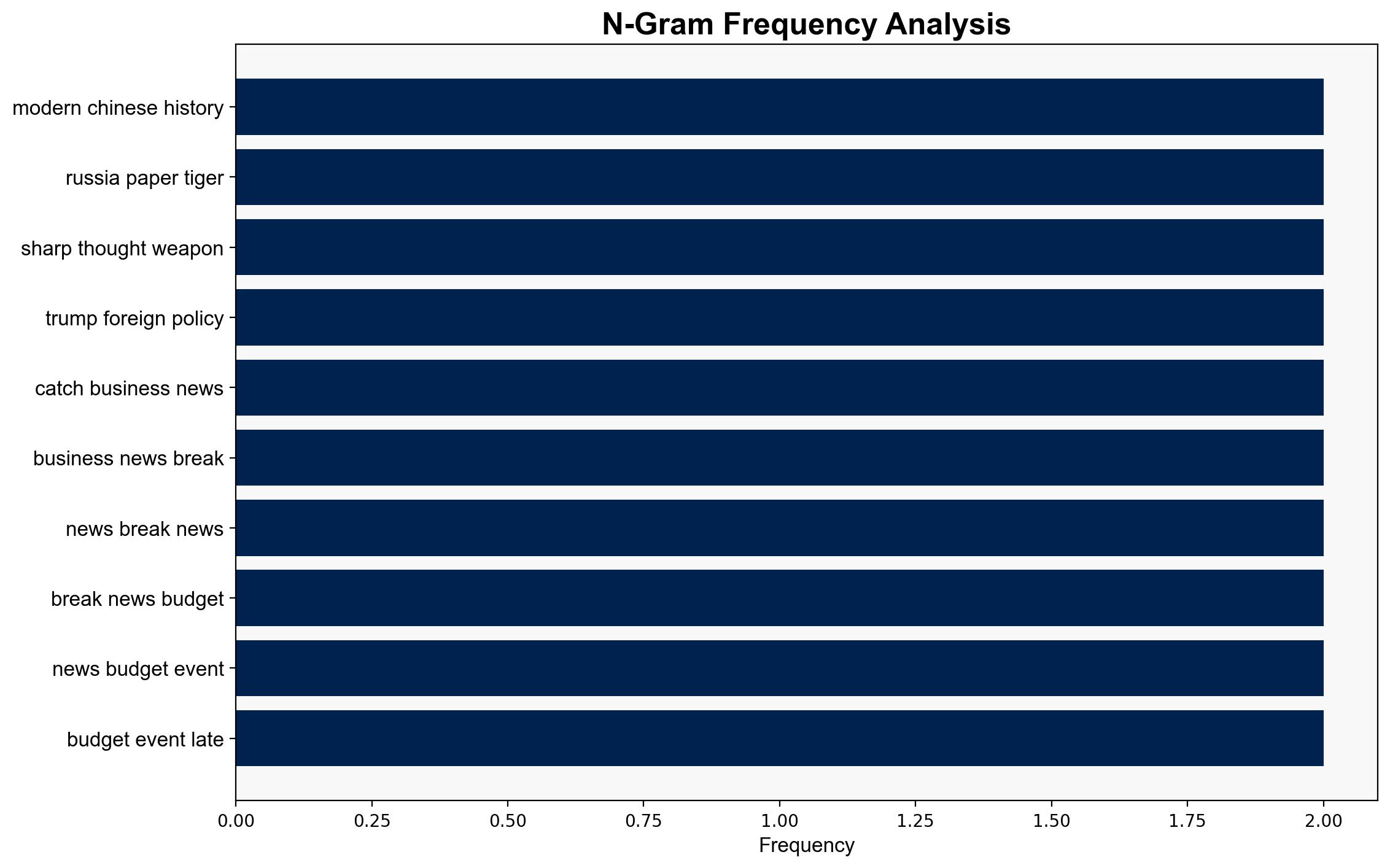Trump’s ‘paper tiger’ jab at Russia echoes Mao’s propaganda against US – The Times of India
Published on: 2025-10-04
Intelligence Report: Trump’s ‘paper tiger’ jab at Russia echoes Mao’s propaganda against US – The Times of India
1. BLUF (Bottom Line Up Front)
The strategic judgment is that Trump’s use of the term “paper tiger” to describe Russia’s military power is a rhetorical strategy aimed at undermining perceived threats while simultaneously echoing historical propaganda. The most supported hypothesis is that this rhetoric is intended to influence both domestic and international perceptions of military power dynamics. Confidence in this assessment is moderate due to the complexity of geopolitical narratives and historical context. Recommended action includes monitoring shifts in international rhetoric and assessing potential impacts on diplomatic relations.
2. Competing Hypotheses
1. **Hypothesis A**: Trump’s rhetoric is a deliberate strategy to downplay Russia’s military threat, leveraging historical propaganda to shift public perception and reduce fear of Russian aggression.
2. **Hypothesis B**: The use of “paper tiger” is an unintentional echo of Maoist propaganda, reflecting a lack of strategic depth and potentially undermining U.S. credibility in international relations.
Using ACH 2.0, Hypothesis A is better supported as it aligns with Trump’s historical use of provocative language to influence public discourse and policy debates. Hypothesis B, while plausible, lacks direct evidence of intent or strategic planning.
3. Key Assumptions and Red Flags
– **Assumptions**: It is assumed that Trump’s rhetoric is strategically calculated rather than impulsive. Another assumption is that historical references are understood by the target audience.
– **Red Flags**: The potential for misinterpretation of historical references by international audiences could lead to diplomatic tensions. The lack of explicit strategic context in Trump’s statements raises questions about underlying intentions.
4. Implications and Strategic Risks
The use of “paper tiger” could alter perceptions of military threats, potentially leading to miscalculations by adversaries. This rhetoric might embolden allies or adversaries to test U.S. resolve, impacting geopolitical stability. Economic and cyber dimensions could also be influenced if adversaries perceive a weakened U.S. stance.
5. Recommendations and Outlook
- Monitor international reactions to Trump’s rhetoric to assess shifts in alliance dynamics and adversarial strategies.
- Engage in diplomatic dialogues to clarify U.S. positions and mitigate potential misinterpretations.
- Scenario-based projections:
- **Best Case**: Rhetoric successfully deters adversaries without escalating tensions.
- **Worst Case**: Misinterpretation leads to increased geopolitical tensions and potential conflict.
- **Most Likely**: Short-term diplomatic challenges with limited long-term impact.
6. Key Individuals and Entities
– Donald Trump
– Vladimir Putin
– Xi Jinping
– Mao Zedong (historical reference)
7. Thematic Tags
national security threats, geopolitical strategy, historical rhetoric, U.S.-Russia relations




